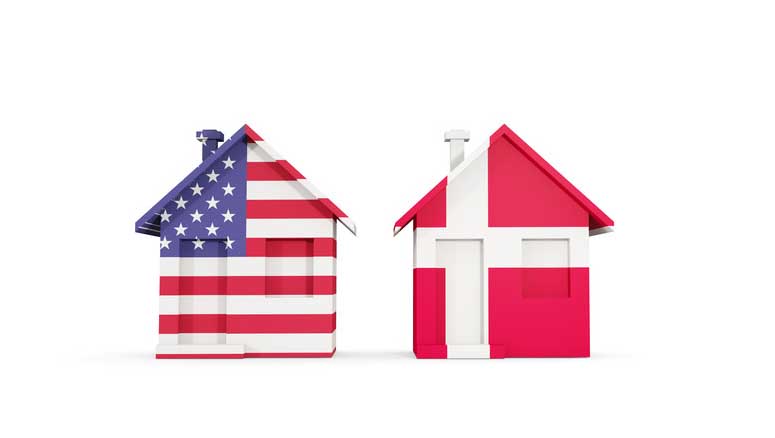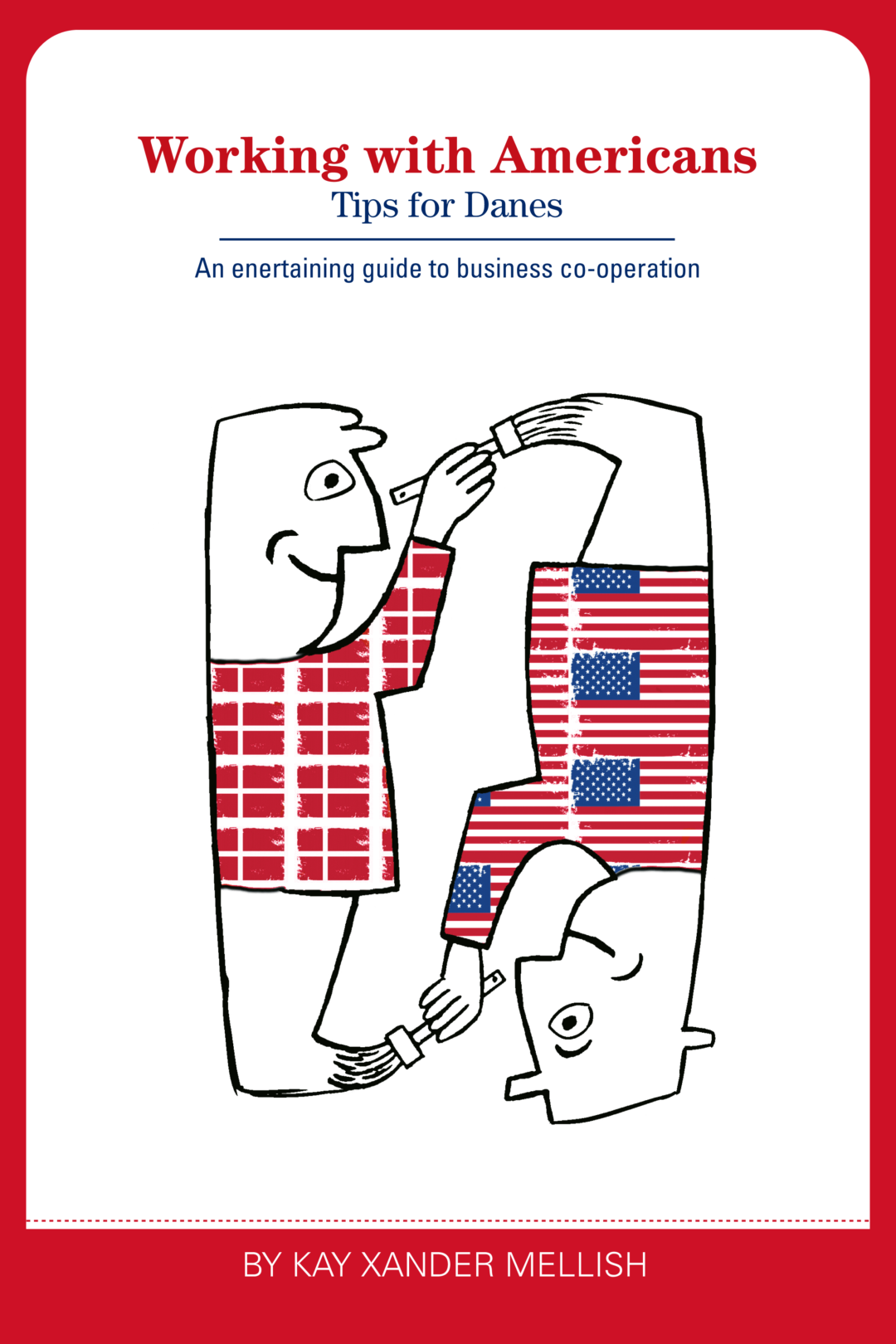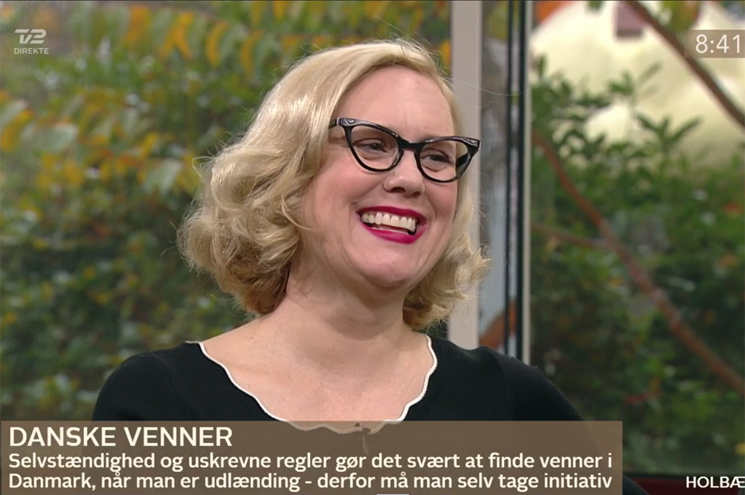In a recent edition of the Danish business newspaper Børsen, Kay Xander Mellish offered seven “Tips for Working with Americans“.
“I hear it again and again when I speak to my clients who deal with American colleagues, customers and suppliers: We thought the cultures were pretty much alike, but they’re not,” Kay writes in Danish.
“The US is a high-risk, high-reward culture that can seem both exhilarating and cruel to a Dane raised on social cohesion, trust, and safety. And American business culture reflects both the excitement and energy and unforgiving nature of American life.”
Tips for working with Americans
In the Børsen article, Kay offers several tips from her new book Working with Americans: Tips for Danes.
Act enthusiastic.The cool, controlled behaviour and flat speaking voice that signify a mature adult in Denmark can be misinterpreted by Americans as disinterest or even boredom. Americans live life with an exclamation point. If you want Americans to get excited about your product, you will need to act as enthusiastic as they do.
Think big. Danes sometimes make the mistake of “thinking small” when going into a negotiation and focusing only on the potential deal at hand. But their American counterparts may not want to limit themselves. They may think bigger, bigger, bigger. In American business as American life, you can always go much lower or much higher, in price or in scope. Be prepared for upselling if the opportunity presents itself.
Give positive feedback. Danes often take the approach that “We hired you to do a job, you’re doing it, and we’ll let you know if there is a problem.” But Americans raised on a culture of constant positive reinforcement often perceive this as “You only call us when something goes wrong.” Keep your US employees and suppliers happy by adopting the habit of regular appreciation for everything that goes right.
Avoid sarcasm and Danish humor. Humor is always tough to export, and the Danish conviction that everyone should be able to make fun of themselves can clash with American sensitivities in a politically correct age. Sarcasm is another risk – the Americans probably won’t understand it and it could get you branded as a negative person, one of the worst things to be in American eyes.
Set specific targets and outline assignments. Danish employees like a feeling of independence, of being given a project outline and trusted to finish it well and on time. American employees are accustomed to clearer instructions and goals. Some may find the Danish approach refreshing, but most will find it nebulous and confusing. Americans also expect more monitoring. If you’re not watching them, some employees will take the opportunity to goof off.
US customers expect high availability. If you’re dealing with a US customer or business partner, don’t count on them to be understanding when you take an extended Danish-style summer vacation and they can’t reach you. In the US, the customer is king and convenience is queen, so if you make access to you or your product too difficult, competitors may see an opening. Limited “telephone times” like in Denmark don’t work; you need to be available at any time within working hours, and sometimes outside them.
Hierarchy is a part of the meritocratic culture. One aspect of American life Danes don’t always understand is how hard it is to make to the top, even for people who come from a relatively privileged background. Once a man or a woman has become a boss, they want the respect and the power that comes with that position. They like their titles, and they’ll often make decisions on their own, without seeking consensus from their team.
Before you go, study the differences
The most important thing to remember is that even though the US and Denmark have a lot in common – like a lack of patience with formalities, and the love of a good deal – the business cultures are very different. Study those differences and plan how you’ll handle them before you go.
Read the original article in Danish.

Book Kay for a Working With Americans presentation for your group or organization.
Or follow Kay on LinkedIn.
Image mashup credit: Kay Xander Mellish 2025
Read more:
Tips for Danes working with Americans, and Americans working with Danes
























